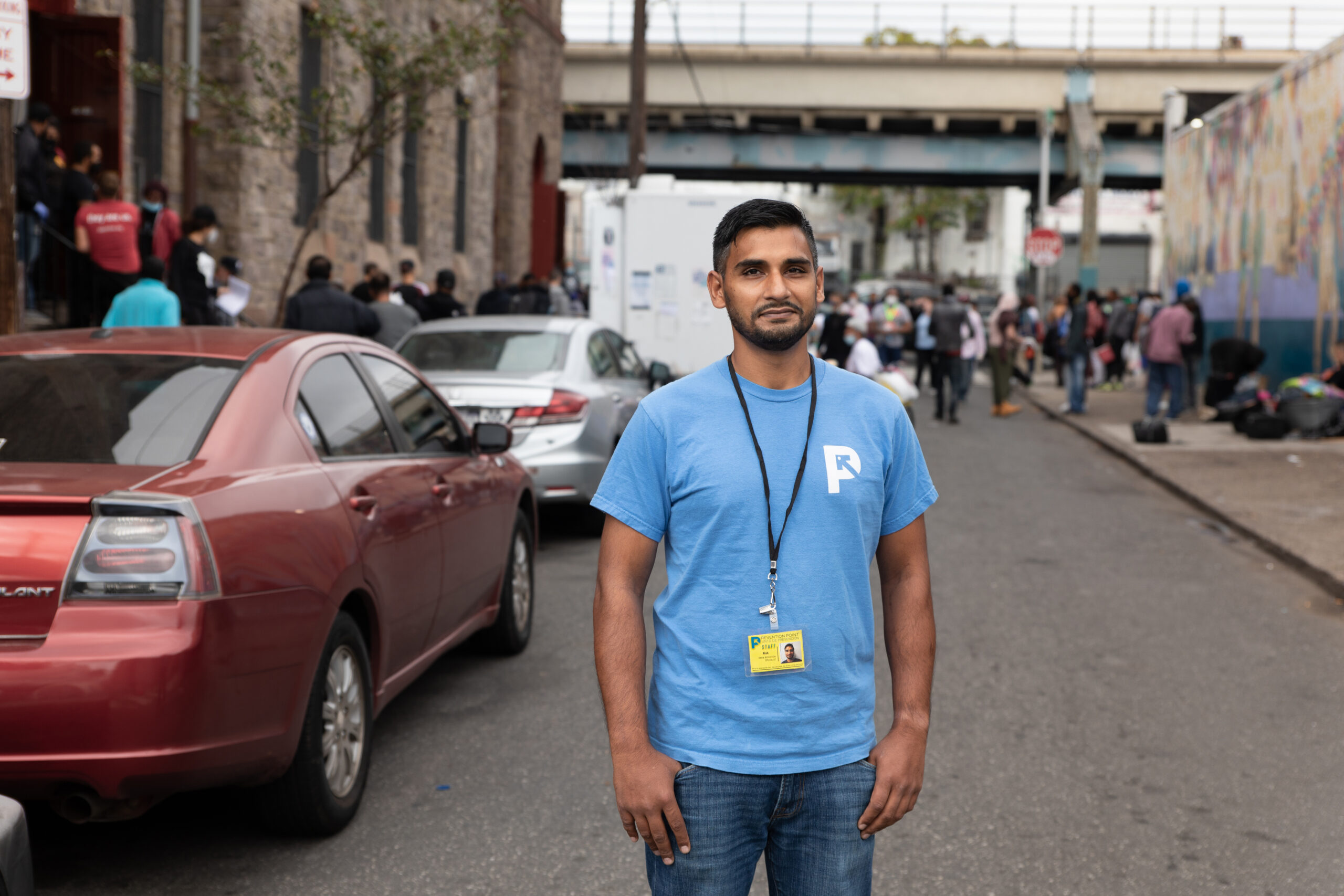Nish
Prevention Point Philadelphia

Prevention Point Philadelphia Harm Reduction Specialist
+ Expand story
My first interaction with Prevention Point was as a participant. They saved my life multiple times in multiple ways. They fed me when I hadn’t eaten in days, they gave me water when I hadn’t drank all day. They gave me a place to sit down when nobody else would even let me sit down. And then of course the Narcan that they provided saved me multiple times. I would definitely not be sitting here if it wasn’t for this organization. I like to say that I’m one of Prevention Point’s success stories.
When I was ready to try another attempt at treatment for opioid use disorder, I knew that this place would support me. I knew that they would help me find the peer support specialist that I could call when I was struggling. I knew that they would help me with transportation to get to my appointments, to get to the methadone clinic. I knew that they would connect me with services when I was ready to go into inpatient treatment. All of that kind of builds up over time. It wasn’t like the first time I came here I went straight to that—they built a relationship with me. I spent a year and a half on the streets out here, and when you’re out on the streets homeless, heavily using chaotically, it’s very lonely. I knew when I came here I could not feel so scared for just a little while. The people that work here made me feel that way.
Initially I started volunteering at Prevention Point. When I was here I didn’t think about using and I felt good about myself so I wanted more of that. Now I work with the syringe services program, getting our shipment of needles and packaging them up with supplies to get them ready for the exchange and for distribution. On Fridays we do an education table. Every week we pick a new topic—something that they can learn about how to be safer in their use or their health. At the same time, I’m also letting them know about the other services we offer. One that I try to stress is HIV and hep C testing. We also do treatment here. It’s not just handing you the medicine or the prescription, it’s all the support surrounding it, so letting people know about that.
I feel like that’s the function of an exchange to meet people where they are and also bring them up and help them better themselves. Help them learn that so much is possible for them. Because I know what it’s like to be on the other side of it and feel hopeless, and feel like so much is out of reach and it’s not. That’s such a crucial juncture. When an exchange is running well, we’re helping people get into treatment, helping people getting into housing, helping people get fed, helping people get clothed, all of these things. The exchange is the point of contact but there’s so much more we can do while we have them.